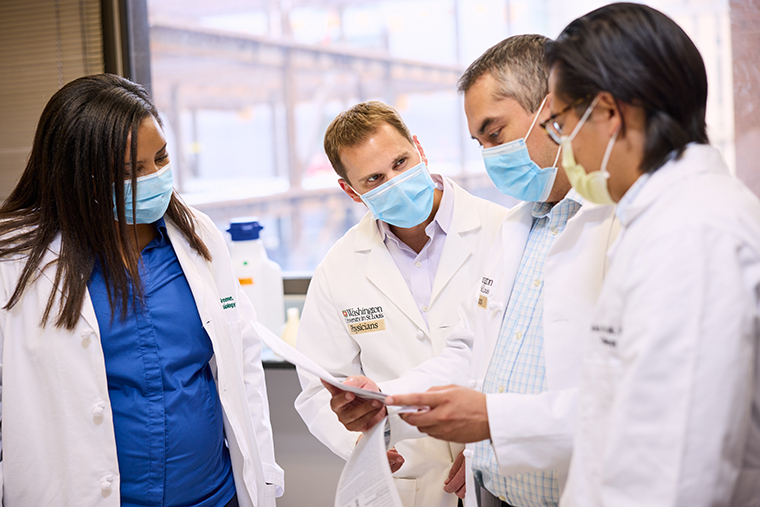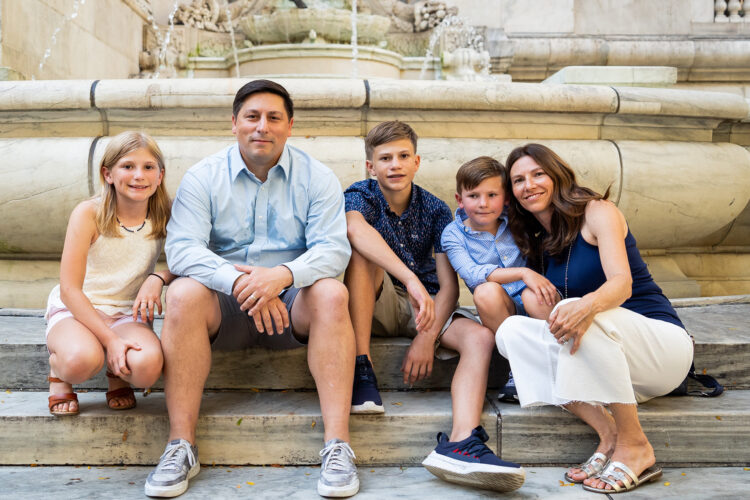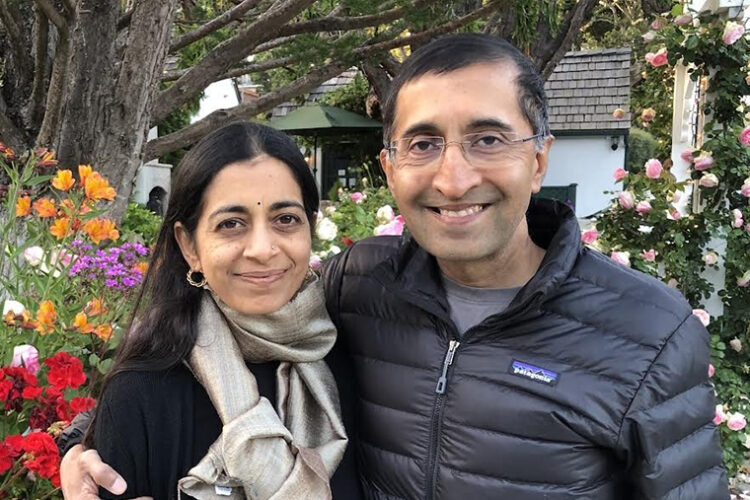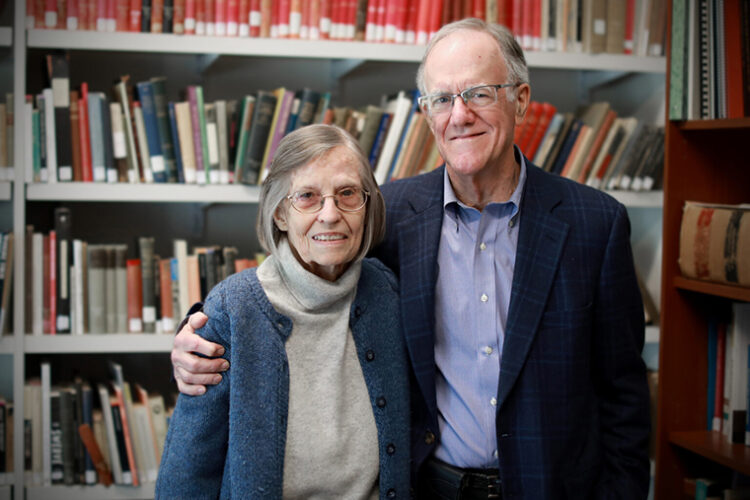When St. Louis native Kim Kuehner, MBA ’77, made his first foray into medical philanthropy in 2018, he viewed it as a long-term investment that would enable him to play a role in advancing human health. He did not expect his $15 million gift for an endowment supporting personalized cardiovascular research at Washington University School of Medicine to yield rapid results.
Energizing research
Kim Kuehner’s gift has provided funds to:
Help recruit talent
- 2 professors
- 2 lab staff
- 4 graduate students
Purchase equipment
- More than $850,000
Establish partnerships
- 3 biopharmaceutical companies
Secure grants
- $4.2 million, National Institutes of Health
- $1 million, Leducq Foundation
- $350,000, American Heart Association
Just six years later, however, investigators associated with the Cardiovascular Precision Medicine Research Initiative (CPRi) launched through Kuehner’s gift have produced multiple breakthroughs. They developed a drug that targets inflammation associated with heart damage and failure; identified how plaques form in arteries and why some break free and cause life-threatening obstructions; and showed how the body’s immune response to the virus that causes COVID-19 contributes to cardiac injury.
“Kim Kuehner’s gift accelerated our research,” says Kory Lavine, MD/PhD ’08, professor of medicine and director of the CPRi. “It has allowed us to take risks and conduct innovative experiments to determine the mechanisms of heart disease and point the way to new drugs.”
Embedded within the Center for Cardiovascular Research, also led by Lavine, the CPRi aims to define subtypes of heart failure and coronary artery disease based on their cellular, molecular, and genetic footprints and develop new treatments targeting these unique pathologies. Instead of a one-size-fits-all approach that may not work for everyone, physicians could then deliver precision therapies tailored to individual patients.
Annual payout from the endowment created by Kuehner provides ongoing resources for investigators to explore new ideas, purchase equipment, recruit staff, and more. This flexible funding kick-starts the research process, Lavine says.
“With traditional grant sources, such as the National Institutes of Health, funding is limited, and competition is fierce,” he says. “You end up doing a lot of sequential experiments that tell you whether you should go down a particular road or pick another. The Kuehner funding enables us to conduct bold and promising studies in parallel. We’re pursuing more research that really matters.”
With this increase in research, Lavine estimates he has doubled his output of scientific papers for publication. “It still surprises me how quickly things can go when you’re properly resourced,” he says. In addition, work funded through the Kuehner gift has helped scientists secure grants totaling more than $6 million. It also has generated partnerships with three companies — Amgen Inc., Kiniksa Pharmaceuticals, and Novartis AG — to translate findings into new treatments and has fueled initiatives within the School of Medicine to develop new diagnostic tools.
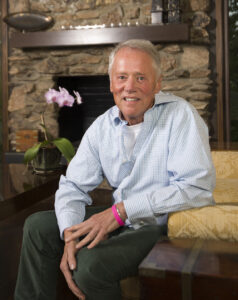
“Kim Kuehner’s generosity is paving the way for novel diagnostic and treatment approaches that will prolong and improve lives,” says David H. Perlmutter, MD, executive vice chancellor for medical affairs and the George and Carol Bauer Dean of the School of Medicine. “We are grateful for his confidence in our scientists and partnership in their efforts to deliver groundbreaking personalized medicine solutions.”
Kuehner, a retired men’s clothing retailer, relishes receiving updates about the work funded by his gift. “Science was not my best subject in high school, but Dr. Lavine does a great job of explaining things,” he says. “It’s exciting to hear about the researchers’ progress.”
Even more rewarding, Kuehner adds, is the long-term payoff associated with supporting biomedical discovery. “I’m so happy I became involved with the medical school,” he says. “If you ever wonder about your footprint in life, this is a way to make sure you’re having an impact on people and the world long after you’re gone.”
